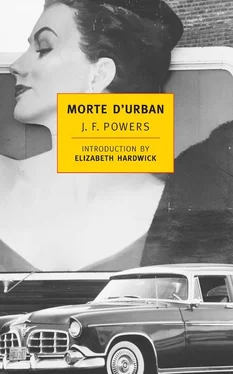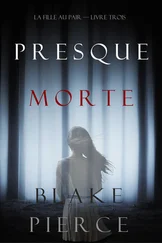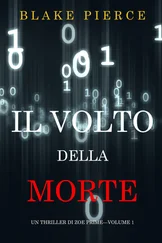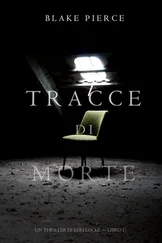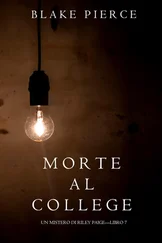Taking leave of Wilf, Father Urban said, “Let’s face it. We have to go after a different breed of retreatant.”
A few days later, Father Urban was out strolling among the children in the school playground, talking to one of the sisters, a Chicago girl, when Cal, of Cal’s Body Shop, brought Phil’s car back. In a way, Father Urban was sorry to see it. For two days, he’d had the use of Sylvia Bean’s little English sports car — a Barracuda S-X 2. He complimented Cal on the fine job he’d done on the back fender of Phil’s Plymouth, and then said he supposed he ought to return the little Barracuda to its rightful owner. Cal caught on and said, sure, he’d follow in the big car.
Sylvia wasn’t home, but Father Urban left the little Barracuda in the driveway and gave the key to the maid. Cal moved over, and Father Urban drove him to his place of business. Cal, who knew the circumstances of the accident, said he’d shaved the bill down as far as he could in case Father Urban had to pay it. “Mighty white of you, Cal.” Father Urban then drove off to see the party responsible for the accident in which, fortunately, only Phil’s car had suffered, and it only forty-eight dollars’ worth.
The other party’s address, given to Father Urban by the cop summoned to the scene of the accident, was simply R.R.2, Duesterhaus, and so Father Urban dropped in at the Duesterhaus post office for more information. He discovered that the other party was a farmer whose property adjoined that of the Order, none other than the owner of the black dog, Rex, of whom Wilf was so fond.
At the time of the accident the farmer, an elderly man, had been about to deliver a load of firewood — white birch logs that really looked too nice to burn — to a big house a few doors away from Ray Bean’s. Running his old truck off the steep driveway on his first attempt, he’d backed out into the street to try again, and without watching where he was going, when Father Urban happened by. There was a scum of wet snow. Father Urban’s wheel tracks showed that he’d done all he could. He was completely in the clear. But the farmer had no insurance.
Father Urban found Mr Hanson and the dog at home. The dog seemed to recognize him, but Mr Hanson didn’t, and so Father Urban introduced himself. He mentioned his connection with the Hill (“We’re neighbors”), and then presented the bill, saying that Cal had shaved it down as far as he could.
Mr Hanson said, Yar, he guessed he’d have to pay it. He didn’t have no insurance, he said, because he’d been delivering his last load. He was giving up farming, going to California where his daughter was. His missis had passed away. Some fellers might buy his place, he said. So far, though, they were holding out, wouldn’t give him his price. Father Urban asked what that might be. Mr Hanson had an old frame house, a red barn in very bad shape, and about sixty acres left of what, he said, had once been four hundred. In the distance, Father Urban could see the thin little woods, not many birches left, where the farmer had cut his last load. After finding out what Mr Hanson wanted for his property, which took a bit of doing, Father Urban left. At that point, he really didn’t know why he’d bothered to find out.
The following afternoon, he was back, and Monsignor Renton was with him (“I just want to know what you think, Monsignor, and I may need your help later”). They walked over the still-frozen ground with Mr Hanson and Rex. The property included about three hundred yards of barren shore line on Pickle Lake (as Mr Hanson called it). He said the fellers who might buy his property weren’t interested in farming it but in selling off lots for summer cottages. Father Urban asked who they were, these fellers, and Mr Hanson mentioned a couple of names. One of them was familiar to Father Urban who said, no, he wasn’t thinking of cottages, and, no, he wasn’t thinking of farming — for one thing, as Mr Hanson had pointed out, the barn needed too much work. Father Urban, not saying what he was thinking of (Monsignor Renton made this easier by whooping it up with the dog), asked Mr Hanson to do nothing until he heard from him, and wrote down St Monica’s telephone number (“Just call collect”) in case anything got going with the fellers (“We’re neighbors, after all”). Mr Hanson said, Yar, O.K.
After that, Father Urban and Monsignor Renton drove over to the Hill. “Busy, Father?” Wilf was in his office.
“Oh, I guess there’s nothing that won’t keep. Oh hello, Monsignor. I didn’t see you.”
Presently, Father Urban told Wilf what was on his mind.
“My God!” cried Wilf, but he wanted to hear more.
Later that afternoon, alone in the upper room at St Monica’s, Father Urban made himself a scotch highball, carried it to the little secretary desk, sat down, and took out several sheets of paper. For some time, he fingered the letter opener, which was like a little sword, and then, suddenly, he put it aside, took pen in hand, and wrote, “Dear Billy:”
Billy phoned the next day, about noon, from the railroad station in— Where? You’re kidding! Father Urban had sent Billy a very long wire at straight rates, but he hadn’t asked, or even hoped, for anything like this. “O.K., I’ll be right down to get you,” he said, and then, before he left the rectory, he rang up Monsignor Renton. “Great, good news, Monsignor!”
They met at the station, Father Urban, Monsignor Renton, Billy, and a Mr Robertson. Billy and Mr Robertson had taken the Blackhawk up from Chicago (“I’m not knocking it, but it used to be a better train”), and they’d made connections at St Paul that morning with the Voyageur (“Don’t knock it, Monsignor”). Monsignor Renton took them to lunch in the Greenwich Village Room (“Best we can do, I’m afraid”—“Don’t knock it, Monsignor”), and after a pretty fair meal, they drove out to Mr Hanson’s, Billy and Father Urban in the Plymouth, Mr Robertson and Monsignor Renton in the latter’s Imperial.
Mr. Hanson and the truck were elsewhere, but Rex showed the party around the farm. Most of the time they walked in silence, Mr Robertson occasionally raising small binoculars to his eyes. When they were back where they’d started from a half hour before, Billy said:
“Well?”
Mr Robertson gave the frozen ground, which he’d been eyeing from all angles, from close up and afar, one last kick, and said:
“I don’t see why not.”
“Let’s make it a standout course,” said Billy.
As they were getting into the cars, Monsignor Renton now alone in his, Rex spoke to them, and a moment later Mr Hanson and the truck appeared.
Billy, who had been told about Father Urban’s accident, said to Mr Hanson: “Paid that bill yet — that collision bill?”
“Yar, I got to pay it,” said Mr Hanson.
“Yar,” said Rex to Monsignor Renton.
“Don’t pay it,” Billy said.
“Yar, I got to pay it.”
“Don’t pay it,” Billy said, “and consider this place sold.”
“Yar, I got to pay it and I got to get my price,” said Mr Hanson.
“Help,” said Billy, and walked toward the car.
Father Urban took Mr Hanson aside and explained the nature of the deal to him. “We’ll pay your price and we’ll pay the bill from Cal’s Body Shop.” When Mr Hanson had got it straight, he was much taken with the idea of not paying the bill, and, of course, he was pleased to know that he’d be getting his price. Father Urban asked Mr Hanson, in a nice way, not to cut any more timber off the land, if he didn’t mind, for it seemed to Father Urban that there were fewer birches than he remembered in the thin little woods.
“Yar, O.K.,” said Mr Hanson, and, instructed by Father Urban, fetched Cal’s bill from the house.
Читать дальше
